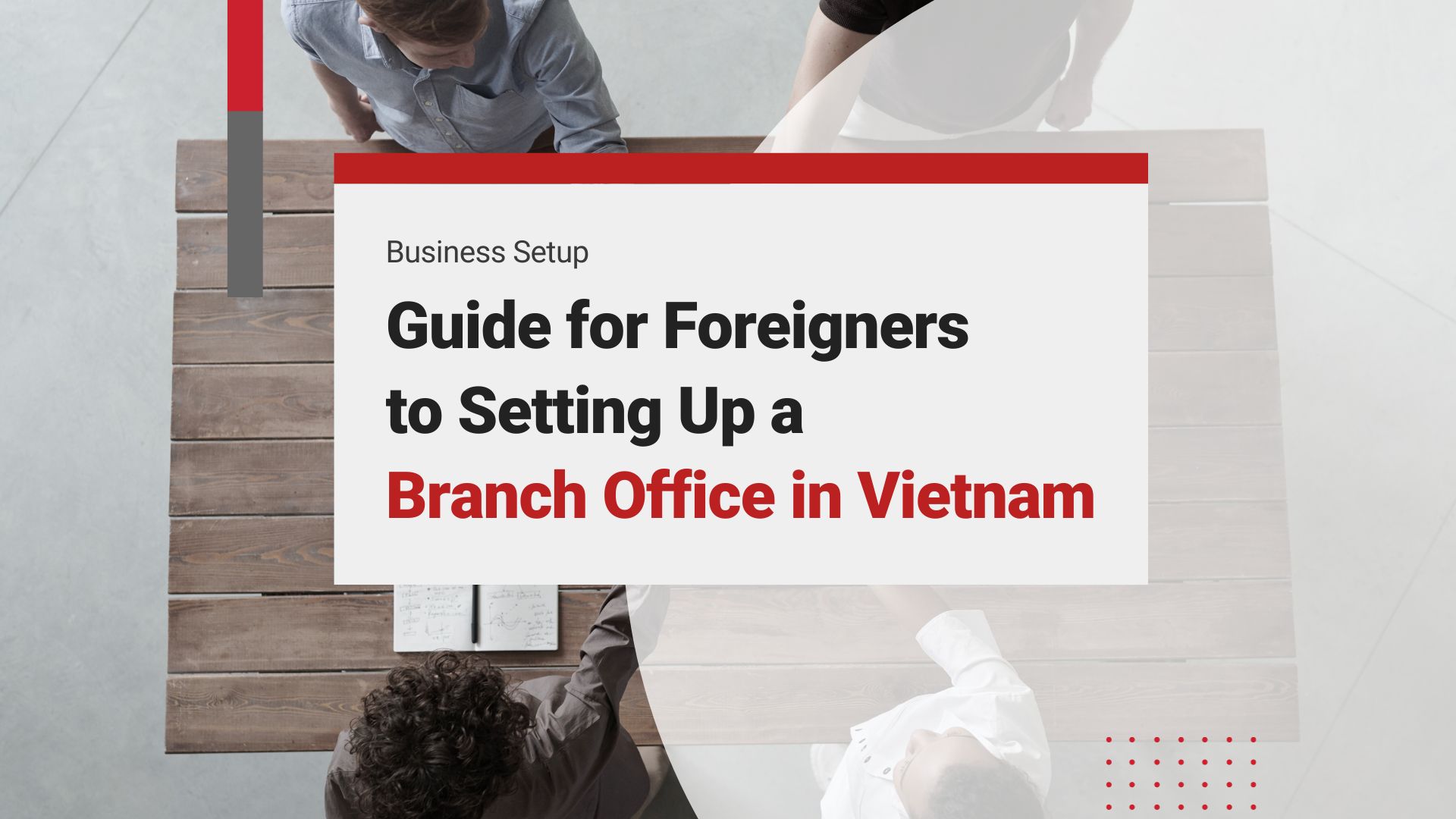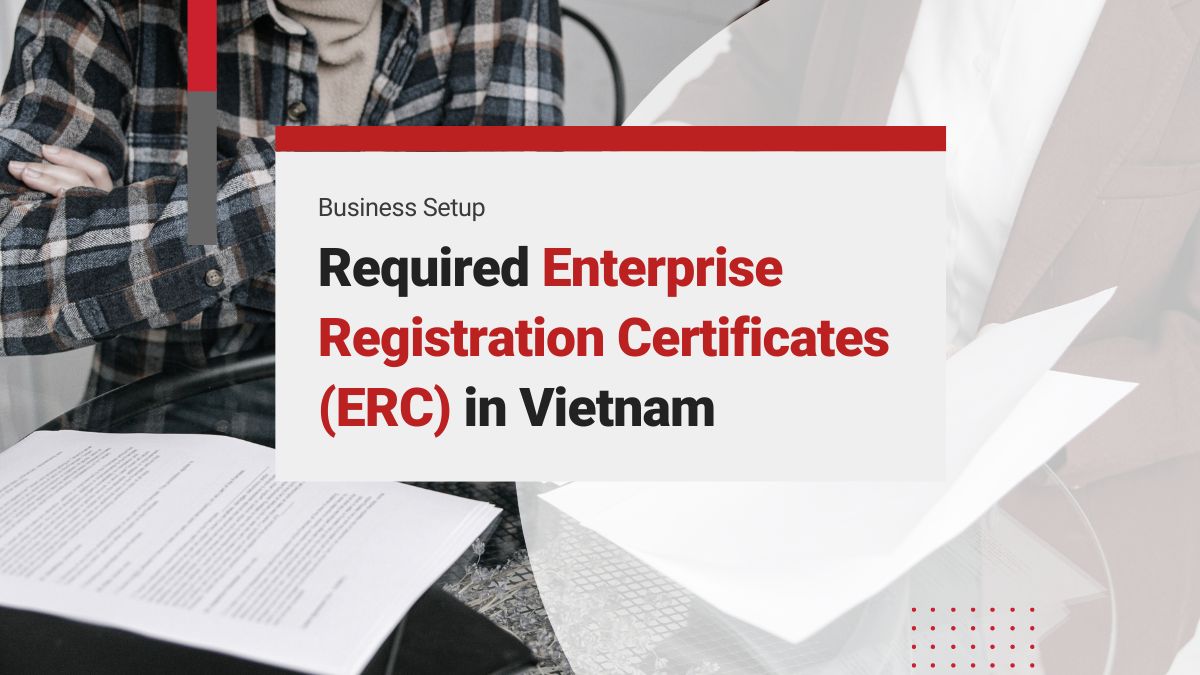With Vietnam registering a GDP growth rate of 6.93% in the second quarter of 2024 (up from 5.87% in the first quarter), it’s not too hard to envision the country as one of the fastest-growing economies in the world. A key aspect of this increased growth rate is how the manufacturing sector has developed over the years, contributing to the economy. Thanks to this boom in manufacturing, the average annual growth rate of the country is expected to be 5.1% until 2050, making it a formidable destination for foreign investments.
All this has created opportunities for foreign investors to set up companies in Vietnam as they look for new avenues to expand their business in Southeast Asia. However, to turn opportunities into actionable outcomes, an ideal business partner is essential. Most foreign entrepreneurs look for local business partners to set up business in Vietnam, as it provides a more viable alternative to forming a limited liability company (LLC) in the country.
This collaboration and partnership in business are key to being successful in Vietnam. In this article, we have provided details on how to find the right business partner for your venture, including ways of dealing with a controlling partner and the challenges of finding one.
Finding a Business Partner for your Business in Vietnam? Check out InCorp Vietnam’s Business Matching Services in Vietnam
The Importance of a Business Partner
Collaboration is essential for running a successful business, especially external collaborations like partnerships with other companies or individuals. For any company, the hallmark of success is based on 3 aspects: well-defined objectives, the use of appropriate tools, and the fostering of a collaborative culture. Hence, you need to know how to take on a business partner in Vietnam to run your company at optimum capacity.
A local business partner is not just an asset to kick-start your entrepreneurial journal; they also help inculcate Vietnamese values into the system. This is the most critical aspect of why people opt for local business partners, as they are rooted in the culture of the country and know what works and what doesn’t.
They can also help in networking within the industry and establishing a relationship with the authorities in Vietnam, providing a strong foundation for the company and drawing investments.
Read More: Partnership Company in Vietnam: Definitions, Distinctions, and Registration Guide for Foreigners
If you are a foreign investor looking to expand your business in Vietnam, you should opt for a local business partner for the following reasons:
- It will help you overcome the language barrier and avoid red tape in the country.
- It will make it easier for you to navigate the Vietnamese market, overcoming the differences in business culture.
- They can help in drawing investments and thus bring capital to the company.
- They add know-how and different perspectives to the business, along with a networking facility.
- They can help you develop your entry and exit strategy.
- It can lead to long-sustaining motivation for the company with the same vision with which you started.
Collaboration and partnership in business are also cost-effective as they make way for shared resources. The right business partner can open up more opportunities and resources for you, as they can connect you with ventures whose team or technology you can utilize.
This is crucial in the initial developmental phases of setting up a business when your budget and manpower are low. Also, it aids in risk mitigation as uncertainties and challenges can be shared between collaborative partners or companies, making it easier to address barriers and overcome hurdles.
A study done by Stanford University vindicates this, as it showed that a collaborative mindset makes people 64% more committed to a task compared to when people work alone. Hence, you need a business partner to keep your company locked into its business objectives.
Challenges of Searching for a Business Partner in Vietnam
Finding the right business partner is not a one-size-fits-all solution. Rather, you need to look for people who have industry-specific expertise and experience
Additionally, local companies in Vietnam remain inaccessible on the internet. Investors won’t get to know about the talent available in the market as many companies don’t have websites, and those who do have the information written in the Vietnamese language. So, even if you find potential business partners, the language barriers often act as a barrier.
Apart from these challenges, there are some common barriers to collaboration and partnership in business:
- Conflicts in personality: Business partners often face disagreements and personality conflict issues that take a toll on the decision-making process of the company. It can ultimately hamper business efficiency if you don’t carefully choose a business partner that matches your viewpoint.
- Differences in expectations and goals: It’s paramount that business partners are perfectly aligned about the goals and expectations of the projects and the overall business functioning. You can’t run a company efficiently if one partner is sales-oriented while the other is focused on brand awareness. A mix of both is needed to maintain balance and keep you on track with your company’s vision. Such differences will lead to misunderstandings and conflicts.
- Trust issues: Business partners should completely trust each other to work in sync for the growth of the company. If you have concerns about your partner’s integrity and reliability, then it will be difficult to work with them.
- Resource imbalances: There shouldn’t be any resource imbalances in business partners, like when one party is doing more in terms of funding, time commitment, or expertise than the other. This often causes rifts and tensions within the organization.
- Communication problems: Business partners should efficiently and honestly communicate with each other. Any kind of communication disparity or breakdown can result in missing valuable opportunities or costly delays and mistakes.
To navigate through this, you have to take the help of corporate service providers like InCorp Vietnam, who can find the ideal business partner depending on your business objectives, preferences, and requirements.
Furthermore, most local businesses turn away foreigners and don’t respond to their emails and calls. So, taking the help of a consultancy saves you time and resources as they get you in touch with the right people.
Process of Business Partner Search in Vietnam
Follow these steps for a hassle-free and easy way to search for your ideal business partner in Vietnam.
- Analysis of your business: The first step in finding the right partner is a proper analysis of your company, which will help you understand requirements and where you are positioned in the market. It can also assess the sector-specific requirements of the country.
- Locating a potential business partner: Once you know your exact requirements through the analysis, it’s time to locate a potential match by shortlisting all the candidates you find suitable.
- Planning the visit: After you have located the potential business partners, it’s time to visit them in person for business negotiations. You can take the help of consultancy services to plan your visits, arrange transportation, and also the translators or legal experts needed for signing partnership deals. The consultancy can also assist in preparing follow-up reports after initial meetings.
- Signing the agreement: The ultimate step is signing the partnership agreement after communicating everything to your chosen local business partner. Keep in mind that clear and continuous communication between the business partners is crucial for formulating the agreement and chalking out a business plan.
Read Related: 5 Common Agreements in Vietnam: A Guide of Non-disclosure Agreement
How to Deal with a Controlling Business Partner?
A critical part of finding the ideal business partner is knowing how to deal with a controlling business partner. The decision-making process of the company can get complicated if business partners don’t get along well and one is controlling the other. There are specific ways of dealing with such controlling business partners who always want to dominate and hamper business operations.
- Meet the controlling business partner: The foremost way to address conflicts with your business partner is to meet them and clear the air. Most people either act out of jealousy or start controlling out of habit. It’s important to address these behavior patterns early in the partnership by clearly demarcating when they are overstepping.
For instance, if your business partner often sidelines you at meetings and doesn’t let you speak, casting doubts about your strategies in front of other employees, you need to address it internally and sort it out.
- Control impulsive reactions: The controlling people often do things to provoke reactions from the other side. In such circumstances, it’s vital to be calm and composed and address it formally. Instead of pointing out their faults or reacting angrily, keep your cool and articulate your problems in detail at a later stage.
- Limiting engagement: Most business partners spend quite a lot of time together, including their personal time. This might give your controlling partner the upper hand to influence. Hence, you need to demarcate boundaries and limit interactions and engagements with them. The break from them will essentially provide a perspective change, making you prosper in business as you gain more confidence.
- Resist getting manipulated: A controlling business partner wants to manipulate or control your actions and thoughts. Don’t give in to their suggestions instantly; think over it and then approve. This is especially essential when you know they are suggesting something inappropriate or wrong.
- Articulate your ideas: One way to deal with a controlling business partner is to voice your opinion and ideas. When a controlling person gets the idea that they have the power to overrule and veto other people’s opinions, they assert themselves more. Hence, you must allow for a free-thinking way of working in the company where everyone can voice their perceptions.
- Cite the agreement: When a business partner gets controlling, take them to the clauses and statements of the partnership agreement. This is necessary to make both parties aware of their talents and duties, allowing them to check on their problematic behavior.
- Seek mediation to sort disputes: If disputes in partnership arise because of your partner’s controlling nature, like withholding information, disagreements about the usage of money, etc., then take the help of mediation or facilitation services to sort it out.
- Build a network: Dealing with a controlling partner can be draining, hence, you need the support of workers and employees who make it easier for you to work by mediating between you two.
- Leave the partnership: If everything fails, then it’s best to leave the partnership agreement. It’s not unprecedented for people to leave their own company over issues related to partnerships or differences in functioning. It’s important to make provision for that in the agreement and clearly articulate that when you finally decide to leave.
Success through Partnership Business Examples
Certain examples from the corporate world show the importance of collaboration and partnership in a business as they demarcate how alliances overcome challenges. This happens due to the mitigation of risks by combining the strengths of the business partners, which eventually leads to growth. In this section, we have highlighted such triumphant collaborations that worked.
- Spotify and Uber: These two companies collaborated to provide the best music options while commuting. Uber customers could personalize their rides with their Spotify playlists, making way for a better ride experience.
- Apple and Nike: Similar to the Uber-Spotify partnership, the teaming up of Apple’s technology with Nike’s fitness and sports product line made way for better fitness tracking for consumers wearing Nike products.
- McDonald’s and Coca-Cola: These two FMCG companies revolutionized the food industry by offering Coca-Cola beverages with McDonald’s burgers and other products. This deal gave the customers what they needed, which ultimately increased the sales of both companies. It particularly helped McDonald’s dominate the fast food industry.
- Red Bull and GoPro: The energy drink producer and the electronics manufacturer teamed up to make high-energy adrenaline-rush videos that showcase exciting adventure sports and extreme sports activities. This unique content built the brand names of both companies as they got millions of views on social media platforms like YouTube.
- Marvel and Netflix: The Netflix and chill mantra of this generation of OTT viewers have been rightly captured by this partnership, which led to the production of several OTT series from Marvel characters. Netflix produced these series on Luke Cage, Jessica Jones, Daredevil, etc., which helped the company generate revenues from the Marvel fan base. Meanwhile, Marvel got a wider reach through the OTT platform.
- Microsoft and Intel: This is one of the biggest partnerships in the tech industry that united Microsoft’s software with Intel’s hardware, often referred to as Wintel. It eventually led them to dominate the PC industry for decades, setting them up in an advantageous position for future technological advancements.
Strategic collaborations like these highlight how crucial partnerships are for market expansion, innovation, and the customer experience.
Why choose InCorp Vietnam as a Business Partner in Vietnam?
To thrive in Vietnam’s dynamic market, having a trusted business partner is crucial. InCorp Vietnam’s expert team provides comprehensive support tailored to your business needs, ensuring smooth entry and growth. Whether you’re navigating complex regulations, setting up operations, or optimizing business functions, we offer solutions that give you a competitive edge. Our in-depth market knowledge and strategic approach help you overcome challenges and maximize opportunities, making us the ideal partner for success in Vietnam.

clients worldwide

professional staff

incorporated entities in 10 years

compliance transactions yearly
Learn the Right Setup for Business
Expansion in the Vietnam
Frequently Asked Questions
How To Deal With A Controlling Business Partner
- Address the issue through open and honest communication, expressing your concerns calmly and professionally. Establish clear roles, responsibilities, and boundaries in writing. If necessary, involve a mediator or legal advisor to help resolve conflicts and protect your interests.
How To Find Business Partners
- Identify potential partners through networking events, industry conferences, and online platforms like LinkedIn. Look for individuals or organizations with complementary skills, shared goals, and aligned values. Conduct due diligence to ensure reliability and compatibility.
How To Find Partners For Your Business
- Identify potential partners by networking within your industry, attending relevant events, and leveraging platforms like LinkedIn or industry-specific forums. Clearly define what you're looking for in a partnership and reach out with a compelling value proposition.
What are the 4 types of business partners?
- The four common types of business partners are: 1. **General Partners** – Share management responsibilities and are personally liable for business debts. 2. **Limited Partners** – Invest capital but have limited liability and typically no management role. 3. **Silent Partners** – Contribute capital and share in profits but do not participate in day-to-day operations. 4. **Equity Partners** – Usually found in professional firms; they own a portion of the business and share in profits and decision-making. In a Vietnam context, partners may engage through investment, joint ventures, or business contracts depending on the business structure.






